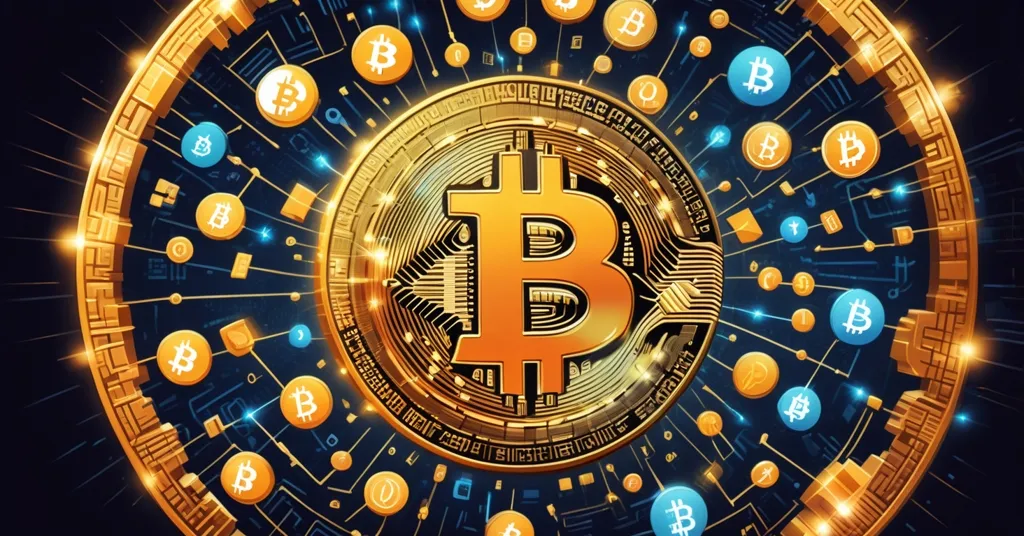Lara Trump Interviews Michael Saylor: Bitcoin as Digital Gold’s Future

Lara Trump and Michael Saylor: Unpacking Bitcoin’s Potential
In a recent Fox News segment, Lara Trump interviewed Michael Saylor, the CEO of MicroStrategy, to explore the transformative potential of Bitcoin. Saylor’s journey from skepticism to advocacy and his vision of Bitcoin as “digital gold” offer a compelling narrative on the cryptocurrency’s future.
- Michael Saylor’s journey from skepticism to advocacy
- Bitcoin as “digital gold” with a fixed supply and decentralized ownership
- Bitcoin’s potential to transform global economic systems
- The significance of the White House Crypto Summit
- Predictions for Bitcoin integration by major tech companies
From Skepticism to Advocacy
Michael Saylor’s relationship with Bitcoin began with skepticism in 2013. By 2020, he had a revelation that led to a strategic pivot for his company, MicroStrategy. In his own words, he explained,
I realized that I was either going to have a fast death or a slow death or I needed to take a risk and transform the business. So what we did is we looked around for something like digital gold that we could purchase on our company’s balance sheet that would save the company and give us a future.
This shift was not just about survival; it was about recognizing an asset with unparalleled potential in the digital age.
The Vision of Digital Gold
Saylor’s vision of Bitcoin as “digital gold” hinges on its limited supply and decentralized nature. Bitcoin is called “digital gold” because, like gold, it has a fixed supply—21 million coins—and can serve as a store of value. He argues,
How do you make gold better? You make it digital so I can send it from New York to Tokyo in a few minutes. […] There’s only 21 million bitcoins—21 million forever. You can take it with you. Nobody can take it away from you.
This comparison highlights Bitcoin’s advantages over physical gold, including portability and security.
Born out of the 2008-2009 financial crisis, Bitcoin represents “sovereign money”—a currency not controlled by any central authority. It offers individuals a way to protect their savings from economic shocks without relying on intermediaries like banks. As Saylor puts it,
What if you just wanted to take your life savings and put it into a bank in cyberspace that promises to never freeze your funds, that isn’t run by humans, it’s run by incorruptible software?
The White House Crypto Summit
Saylor emphasized the importance of the White House Crypto Summit in shaping U.S. policy toward digital assets. He believes that clear legal frameworks are essential for U.S. companies to issue digital tokens, securities, and currencies. This, he argues, could position America as a leader in the digital economy. He stated,
If the United States government begins to hold it in a strategic reserve, the beneficiary will be America.
Future Integration of Bitcoin
Looking to the future, Saylor predicts that major tech firms like Apple, Google, Microsoft, and Amazon will integrate Bitcoin into their services. This could revolutionize how individuals interact with their finances, turning Bitcoin into a common savings account for families. His optimism is rooted in a belief in innovation and creativity, as he stated,
If we want to make America great again, we have to do it with creativity, with imagination, with innovation, with inspiration. […] This administration […] believes we can grow and innovate our way to a better world.
Challenges and Counterpoints
While Saylor’s enthusiasm for Bitcoin is undeniable, it’s crucial to acknowledge its challenges. Bitcoin’s volatility remains a significant concern, and the path to widespread adoption is fraught with regulatory and technological hurdles. Moreover, the energy consumption associated with Bitcoin mining and the risk of regulatory crackdowns cannot be ignored. Yet, the potential for Bitcoin to disrupt traditional financial systems and empower individuals aligns with the principles of decentralization and freedom.
The Broader Crypto Ecosystem
While Bitcoin is often the star of the show, it’s essential to consider the broader crypto ecosystem. Altcoins and other blockchains play unique roles, filling niches that Bitcoin might not serve. Ethereum, for instance, has become a hub for decentralized applications and smart contracts, while other cryptocurrencies focus on privacy or speed of transactions. This diversity fosters innovation and competition, essential for the health of the entire ecosystem.
Conclusion
Michael Saylor’s journey from Bitcoin skeptic to advocate underscores the cryptocurrency’s potential to reshape finance. His vision of Bitcoin as “digital gold” highlights its fixed supply and decentralized nature, offering a compelling alternative to traditional assets. The White House Crypto Summit and the potential integration of Bitcoin by tech giants signal a promising future, yet the challenges of volatility, energy consumption, and regulation must be addressed. As we navigate this financial revolution, the broader crypto ecosystem, with its altcoins and innovative blockchains, remains crucial in driving forward the principles of decentralization and freedom.
Key Takeaways and Questions
- What is Bitcoin’s role according to Michael Saylor?
Bitcoin serves as “digital gold,” a fixed-supply asset that can be used as a savings vehicle, offering protection against economic shocks without intermediaries.
- How does Bitcoin compare to physical gold?
Bitcoin improves on physical gold by being digital, portable, and having a verifiable, decentralized ownership system, with a fixed supply of 21 million coins.
- What was the significance of the White House Crypto Summit?
The summit was crucial for guiding U.S. policy toward embracing digital asset technologies, promoting innovation and economic growth.
- What does Saylor predict for Bitcoin’s future integration?
He predicts that major tech firms like Apple, Google, Microsoft, and Amazon will integrate Bitcoin custody and transactional capabilities into their services, and it will become a common savings account for families.
- What legal changes does Saylor advocate for in the U.S.?
Saylor advocates for clear legal pathways for U.S. companies to issue digital tokens, securities, and currencies, aiming to transform the U.S. into “bankers to the world.”



